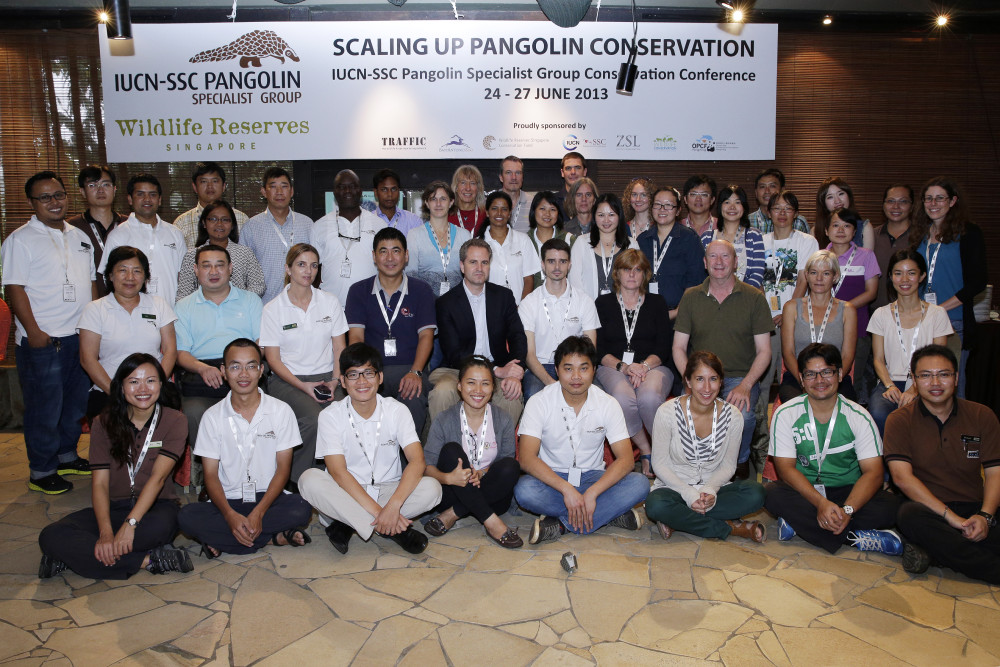The IUCN SSC Pangolin Specialist Group, in conjunction with Wildlife Reserves Singapore and the Wildlife Reserves Singapore Conservation Fund held the 1st ever global conference on the conservation of pangolins between 24th and 27th June, in Singapore. It was attended by over 40 IUCN SSC Pangolin Specialist Group members as well as non-members from 14 countries. The event saw the presentation of recent research into understanding demand for pangolins, ecological monitoring and the latest developments in captive care, followed by workshops conducted to formulate a conservation strategy for pangolin conservation in the next decade. While the event itself was a landmark in the conservation of pangolins, a multi-faceted approach is urgently needed to conserve pangolins given their declining conservation status worldwide. Professor Jonathan Baillie, Co-Chair of the IUCN SSC Pangolin Specialist Group and Conservation Programmes Director at the Zoological Society of London said “Not only do we need to reduce demand for pangolin parts in East Asia, we also need to ensure there are pangolin strongholds where we can ensure the viability of populations in the wild.”
This will involve a number of major initiatives including further research into behaviour change to measurably reduce demand for pangolins through social marketing campaigns, assessment of populations in identified strongholds, the strengthening of legislation in East Asian markets and the stepping up of current enforcement efforts in pangolin trade hotspots. However, it will also demand raising awareness about these shy and nocturnal creatures for example, by engaging celebrity support and through publications to celebrate the species. Dr Cheng Wen-Haur, Chief Life Sciences Officer at Wildlife Reserves Singapore said, “At WRS we were proud to work with the IUCN SSC PangolinSG to devise these strategic actions, all of which are crucial to ensuring the conservation of pangolins in Africa as well as Asia.”
Dan Challender, Co-Chair of the IUCN SSC Pangolin Specialist Group and doctoral candidate studying the trade in pangolins in Asia at the Durrell Institute of Conservation and Ecology, University of Kent, put the dynamics of pangolin trade, the species’ principal threat in context. “Following huge declines in populations of the Chinese pangolin, most notably in China, trade has mainly involved the Sunda pangolin in recent years, which occurs across Southeast Asia, but pangolins are now being sourced from South Asia and as far as Africa to meet demand in East Asia.” “As such both reducing demand for the animals and identifying strongholds are absolutely crucial” he added.
The conference also saw the status of the world’s pangolins re-assessed for the International Union for Conservation of Nature’s (IUCN) Red List of Threatened Species, part of the IUCN SSC Pangolin Specialist Group’s mandate as an IUCN advisory body. It was confirmed that populations of each species are in steep decline. The conference was made possible by the generous support of Wildlife Reserves Singapore, Wildlife Reserves Singapore Conservation Fund, the Zoological Society of London, San Antonio Zoo, the Houston Zoo, TRAFFIC and Ocean Park Conservation Foundation, Hong Kong.



